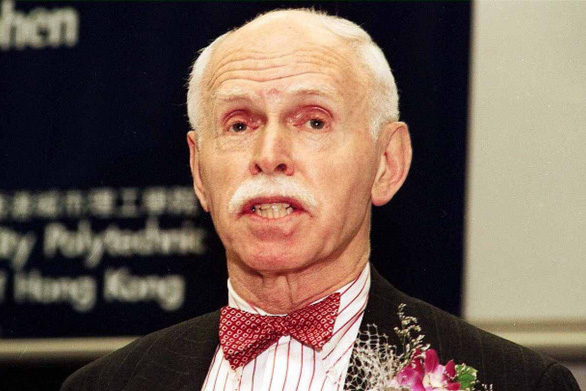As a Chinese marine research vessel escorted by coast guard ships has continued infringing on Vietnam’s Exclusive Economic Zone (EEZ) and Continental Shelf in more than a month, Tuoi Tre News has discussed the issue with Professor Jerome Cohen, an expert in Chinese law.
Jerome Alan Cohen is a professor of law at the New York University School of Law and a senior fellow for Asia studies at the Council on Foreign Relations, a U.S. nonprofit think tank specializing in American foreign policy and international affairs.
The Vietnamese foreign ministry said on Friday that Chinese survey ship Haiyang Dizhi 8 and its escort vessels had again engaged in a violation of Vietnam’s EEZ and Continental Shelf.
The ministry first confirmed the violation by the Haiyang Dizhi 8 and its escort vessels in the southern area of the East Vietnam Sea on July 19.
On August 8, the Vietnamese foreign ministry said the Chinese ships were no longer in the EEZ and Continental Shelf after having engaged in a month-long infringement of Vietnam’s sovereignty and jurisdiction in the East Vietnam Sea.
Would you mind commenting on China’s recent marine surveys in the EEZ of Malaysia, the Philippines, and Vietnam?
The recent ‘marine surveys’ are obviously part of a continuing effort by China to bolster its claims to maritime resources in Southeast Asia. Having successfully consolidated its recent establishment of new military bases on maritime features in the area, Beijing’s emphasis, at least for a time, is on economics, such as abundant natural resources in the [East Vietnam] Sea, including oil and gas.
Should we consider those actions by China as pressuring ASEAN claimants of the East Vietnam Sea during the Code of Conduct (COC) negotiation process as one of the conditions Beijing put on the table was not allowing countries from the outside to explore and exploit natural resources with countries from the inside?
China would like to elicit the cooperation of the relevant ASEAN states and at least exclude North American, European, Japanese and Indian companies from such cooperation. The COC negotiations will further reveal these goals.
Vietnam's responses to China’s moves at the moment are focused on legal aspects, especially the United Nations Convention on the Law of the Sea (UNCLOS), calling for support from the international community at international conferences (at ASEAN and UN levels), and sending coast guard ships to protect their oil rigs. Do you think those are enough? If not, which methods should be used?
Vietnam should increase its efforts to ally with like-minded ASEAN members to persuade the world community of the legitimate bases for the positions it has adopted. Moreover, Vietnam itself should become much more active in explaining its views in relevant international forums.
This autumn’s UN General Assembly would be a good place to start, and we should hear from Vietnam in many more English-language op-eds, magazine essays, speeches and conferences. China’s propaganda assets are now huge, and the United States is still most prominent in the media. The world needs to hear much more from Vietnam.
What do you think about China's so-called nine-dash-line claim to the East Vietnam Sea? Generally, what does the West think about it?
China’s nine-dash-line claim, long opposed by many governments, has now been largely discredited by the arbitration award of the UNCLOS tribunal in the case brought by the Philippines, despite China’s efforts to denounce the decision.
Beijing’s blatant refusal to respect that decision has done great harm to its hopes to expand “soft power." Clear violations of international treaty obligations damage a nation’s reputation.
Like us on Facebook or follow us on Twitter to get the latest news about Vietnam!

















































